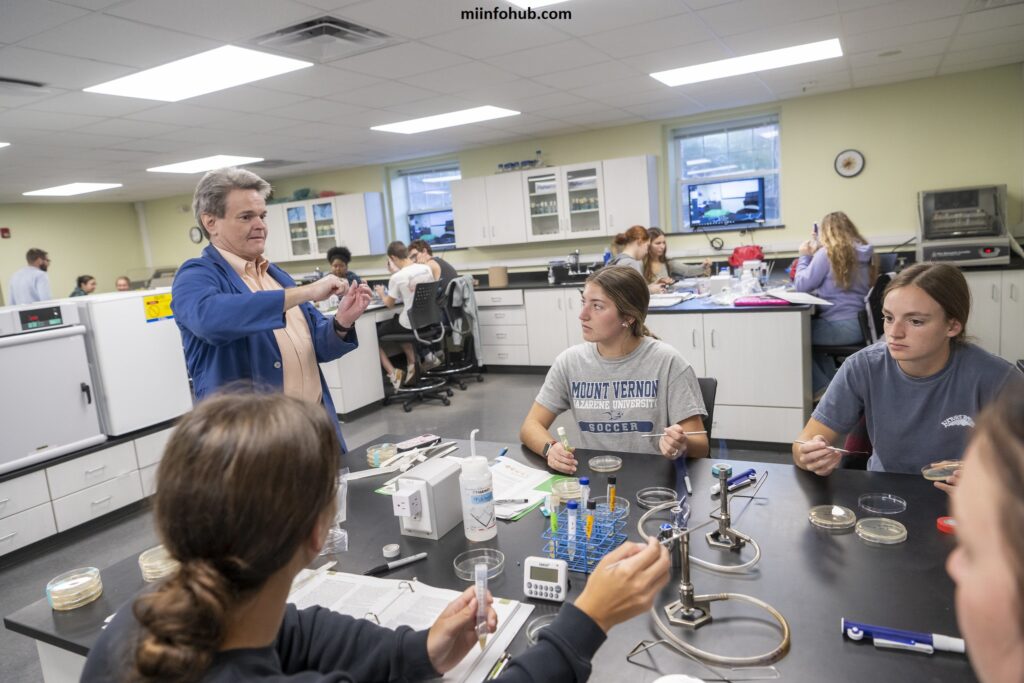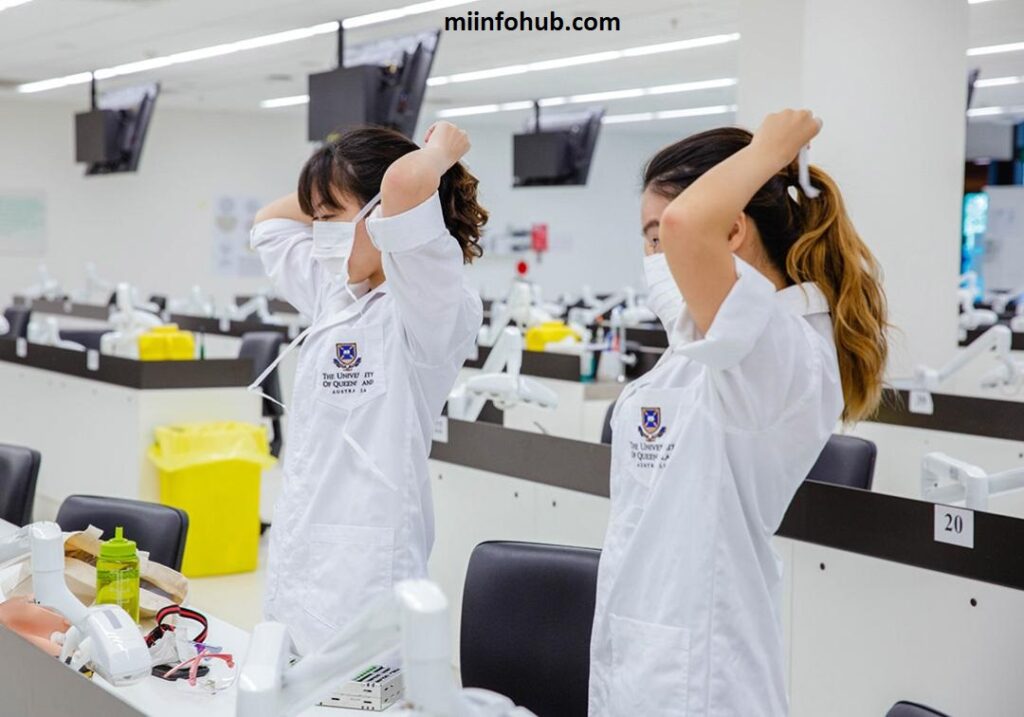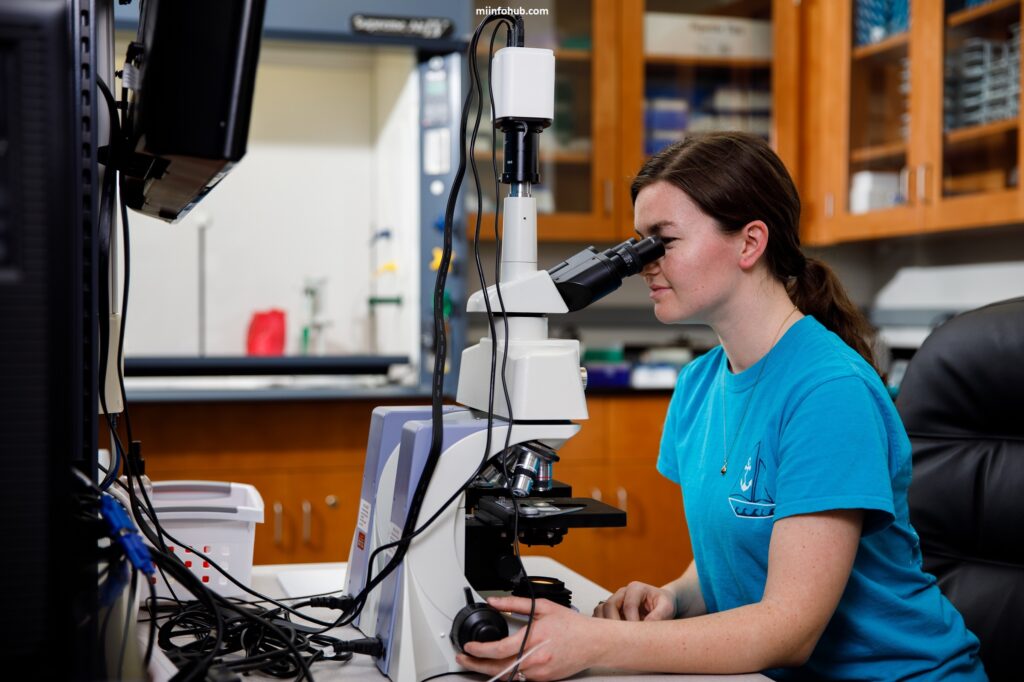A Health Science Bachelor’s Degree opens doors to various rewarding careers in healthcare. With this degree, you can work directly with patients, assist in healthcare management, or even explore public health roles. Below is a complete guide covering career options, benefits, skills needed, and much more.

Overview Of A Health Science Bachelor’s Degree
A Health Science Bachelor’s Degree centers on the study of health, wellness, and disease prevention, blending biology, anatomy, psychology, and social sciences. This interdisciplinary program covers key areas like epidemiology, nutrition, and health behavior, equipping students with a comprehensive understanding of health across individual, community, and population levels.
Graduates gain both clinical insights and administrative skills vital for roles in patient care, health education, healthcare management, and public health advocacy. With a foundation in analyzing health data and designing wellness programs, they’re prepared for careers in clinical care, health policy, community health, and research, ready to make impactful contributions to today’s healthcare challenges. If you want to know about what can i do with a health administration degree then click here.
Advantages Of A Health Science Bachelor’s Degree
- Flexibility Across Roles: A Health Science degree offers a versatile skill set that applies to various healthcare roles, including patient care, health education, and administration.
- High Job Stability: With healthcare growing rapidly, demand for health science professionals is increasing, providing high job security for graduates.
- Diverse Career Paths: Graduates can pursue careers in clinical roles (e.g., health coaching, rehabilitation) or non-clinical positions (e.g., healthcare administration, public health policy).
- Specialization Opportunities: The degree serves as a foundation for specializing in fields like public health, health informatics, epidemiology, or healthcare management.
- Impactful Work: It enables graduates to make a meaningful impact by promoting wellness, preventing disease, improving healthcare access, and educating communities on health issues.
- Advancement Potential: Health Science graduates have pathways to further career growth and can transition into leadership or specialized roles within healthcare.
Skills Developed In A Health Science Program
In a Health Science program, you gain:
- Communication Skills: Essential for clear and compassionate interaction with patients and teamwork with colleagues, enabling effective information sharing and support.
- Analytical Skills: Critical for interpreting data, conducting research, and making evidence-based decisions to improve patient care and health outcomes.
- Problem-Solving Abilities: Necessary for tackling healthcare challenges, creating patient-centered solutions, and adapting to evolving healthcare demands.
- Scientific Knowledge: Strong understanding of anatomy, physiology, and psychology aids in understanding human health, disease, and behavioral factors, supporting informed clinical and educational roles.

Career Paths With A Health Science Bachelor’s Degree
Your degree allows you to pursue various careers in clinical, administrative, and public health fields.
Clinical Careers
- Health Educator: Teach people about health practices and wellness.
- Certified Health Coach: Help clients meet health goals through personalized guidance.
- Rehabilitation Specialist: Assist patients with physical recovery, often in collaboration with doctors and therapists.
Administrative And Support Roles
- Healthcare Administrator: Manage healthcare facilities or departments, overseeing budgets and operations.
- Patient Services Coordinator: Act as a bridge between patients and healthcare providers, ensuring seamless service.
- Medical Sales Representative: Market healthcare products and services to providers, helping to meet healthcare needs.
Public Health Careers
- Public Health Specialist: Work in community health programs, disease prevention, and public health education.
- Epidemiology Assistant: Support epidemiologists in tracking disease trends and improving health outcomes.
- Environmental Health Specialist: Focus on factors affecting community health, like pollution and sanitation.
Is A Health Science Degree Right For You?
If you are passionate about healthcare, want a flexible career, and enjoy working with people, a Health Science degree could be ideal. It suits individuals who are comfortable with science and interested in roles that impact health outcomes. This degree is also good for those looking to advance in healthcare management or public health.
Specialized Fields Within Health Science
Health Science graduates can further specialize in areas such as:
- Health Informatics: Work with healthcare data and technology to improve patient care.
- Occupational Health: Focus on workplace health and safety.
- Nutrition and Dietetics: Help individuals or communities make better nutritional choices.

Work Settings For Health Science Graduates
With a Health Science degree, you can work in diverse settings, including:
- Hospitals and Clinics: Direct patient care or administrative roles.
- Government and Nonprofits: Community health education and policy roles.
- Corporate Wellness Programs: Promoting employee health and safety.
- Academic and Research Institutions: Conducting research or working as health science educators.
Certification And Licensing
While not always required, certifications can enhance career prospects. Some popular options include:
- Certified Health Education Specialist (CHES) for health educators
- Certified Clinical Research Professional (CCRP) for those in research
- Certified Medical Manager (CMM) for healthcare administrators
Salary Potential And Job Outlook
Salaries vary depending on role, location, and experience. Here’s a general overview:
| Role | Average Salary |
|---|---|
| Health Educator | $48,140 per year |
| Healthcare Administrator | $104,280 per year |
| Medical Sales Representative | $65,420 per year |
| Public Health Specialist | $62,000 per year |

How To Get Started In Health Science
To begin a career in Health Science:
- Research Specializations: Identify and focus on research specializations that align with your interests. This can help you develop expertise in a specific area, such as public health, epidemiology, or health informatics, enhancing your career prospects.
- Complete Internships: Gain real-world experience by completing internships or shadowing healthcare professionals. These opportunities provide valuable insights into daily operations and allow you to apply theoretical knowledge in practical settings.
- Network with Professionals: Build connections with professionals in your field through networking events, conferences, or online platforms like LinkedIn. Networking can lead to mentorship opportunities, job leads, and collaborations that enhance your career.
- Consider Certification: Pursue certification in areas such as health education, health administration, or clinical specialties. Certifications can enhance your credentials, demonstrate your commitment to the field, and improve your job prospects.
Challenges In Health Science Careers
Health Science careers are fulfilling, but they come with challenges:
- Emotional Strain: Working with patients or in public health can be emotionally demanding. Professionals often face stressful situations, such as dealing with illness, trauma, or loss. This emotional strain requires resilience and effective coping strategies to maintain personal well-being and provide quality care.
- Continuous Learning: The healthcare field evolves rapidly, necessitating ongoing education and training. Professionals must stay current with new research, technologies, and best practices to deliver effective care and adapt to changes in regulations and treatment approaches.
- Regulatory Demands: Health roles often involve strict regulations and extensive paperwork. Professionals must comply with various laws and guidelines, which can be time-consuming and complex. Attention to detail and organizational skills are crucial to ensure compliance and maintain quality standards in patient care.
Comparing Health Science To Related Fields
Health Science is often compared to similar fields like public health and healthcare management. Here’s how it stands out:
| Field | Focus Area | Ideal For |
|---|---|---|
| Health Science | Direct patient interaction, healthcare support, wellness | Those interested in diverse roles in healthcare |
| Public Health | Community health, policy, and disease prevention | Those passionate about population health |
| Healthcare Management | Business side of healthcare, facility operations | Individuals with a focus on administrative roles |

Alternative Paths With A Health Science Degree
Aside from traditional healthcare roles, you can also explore fields like:
- Healthcare Consulting: Healthcare Consultants advise organizations on various health-related projects. They analyze operations, develop strategies to improve efficiency, and help implement changes that enhance patient care and organizational performance.
- Medical Writing: Medical Writers create content for healthcare publications, websites, and educational materials. They translate complex medical information into clear, accessible language for various audiences, including patients, healthcare professionals, and researchers.
- Healthcare Policy Analyst: Healthcare Policy Analysts work with government agencies or nonprofit organizations to evaluate and influence healthcare legislation. They research policies, analyze their impact, and provide recommendations to improve healthcare systems and access.
Future Trends In Health Science Careers
Health Science careers are evolving with trends like:
- Telehealth Expansion: The use of virtual health services is rapidly increasing. Telehealth allows patients to access medical consultations and care remotely, improving convenience and accessibility. This trend is reshaping healthcare delivery, especially in underserved areas.
- Data-Driven Decision Making: There is a heightened emphasis on healthcare data analytics. Professionals use data to inform clinical decisions, optimize patient outcomes, and improve operational efficiency. Analyzing health data helps identify trends, track disease outbreaks, and enhance patient care strategies.
- Preventative Healthcare: The demand for wellness and preventive health services is on the rise. More individuals are seeking proactive measures to maintain their health and prevent diseases. This shift focuses on lifestyle modifications, screenings, and education to improve overall health outcomes and reduce healthcare costs.
FAQs About Health Science Degrees
Q: Do I need further education after a Bachelor’s in Health Science?
A: Not always, but advanced roles may require a Master’s degree or certifications.
Q: What is the job outlook for health science careers?
A: The healthcare sector is one of the fastest-growing industries, with strong demand for various roles.
Q: Can I work in public health with a Health Science degree?
A: Yes, Health Scienc

Conclusion
A Health Science Bachelor’s Degree offers a wealth of career possibilities. From clinical roles to public health, the options are broad. With strong job stability, potential for advancement, and diverse roles, a Health Science degree equips you for a meaningful and impactful career in healthcare. Whether you’re passionate about patient care, community health, or healthcare management, this degree can pave the way to a fulfilling career in the healthcare sector.


